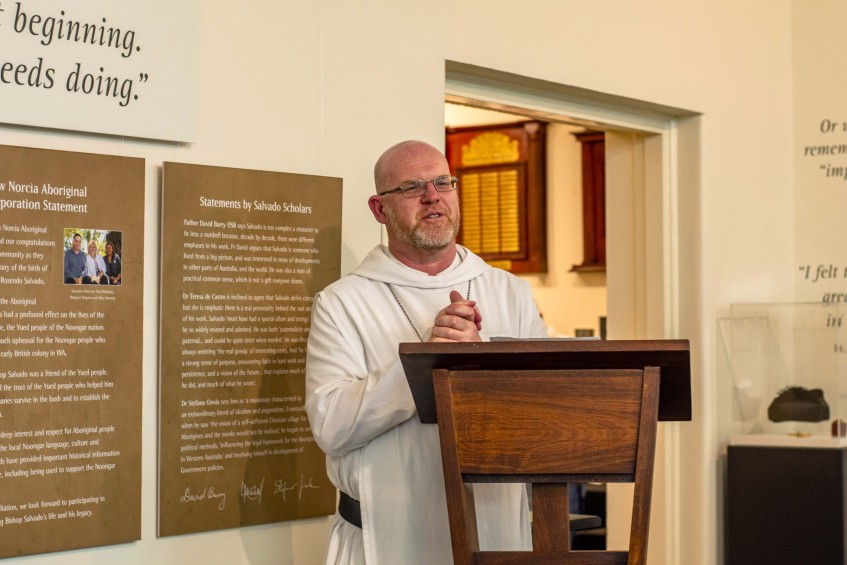Fragility, an opportunity for renewal explored at Conference for Catechists

Abbot John Herbert OSB. Photo: Feby Plando.
By Amanda Murthy
“Remember, Lord, the shortness of my lifeand how frail you have made all human beings.”
This verse from Psalm 88 are the very words that spoke to Rev Abbot Father John Herbert OSB in his darkest hours, he told catechists during a workshop he headed titled “Fragility, an opportunity for renewal”.
The workshop was held at the 2018 Catholic Education Western Australia (CEWA) Catechist Conference from 1 to 2 August, presented by the Catechist Service.
The Benedictine monk went on to say that it was in his realisation of the frail, vulnerable, and dependant reality of humanity – that he acknowledged the shortness of his life as a positive and urgent invitation to accept fragility, viewing it as an invitation for newness of life.
Abbot John explained there are many perspectives in which we can consider fragility - from a personal level (physical, emotional spiritual), to an institutional, communal, and environmental level.
Reflecting on the Scriptures, Abbot John said the Lord encouraged St Paul, when He said: “My grace is sufficient for you, for power is made perfect in weakness”.
“This was also true for the man, Jesus in the extreme weakness of His passion and death on the cross. He willed to make the final surrender of weakness in yielding up His spirit.
“And what power there was in Jesus’ resurrection from the dead,” Abbot John added.
Despite the negative associations linking fragility to the idea of death and weakness, Abbot John invited those present to look at some of its positive aspects.
The first point is that fragility has the potential to disarm violence, he said.
"Force provokes force, weakness changes the logic.
"Fragility constitutes the basis of true interdependence, and from this fact creates a real relationship. Fragility enables volunteers taking care of patients with disabilities to express their own fragility, because what is wanted is not competence but simply presence. That is the transition from dependence to interdependence,” he expressed.
"Finally, fragility recalls basic need. This need is permanent. Fragility reminds us of our radical incompleteness, pushes us to go ever further. In a world in which we believe that we can control and master everything, fragility reminds us permanently that there is something greater than ourselves, which transcends us and leads us forward.”
On an institutional level, Abbot John explained that we – as Catholics – need to keep the eye of faith attuned and alert.
"As weak human beings, we need to ask God’s help so that we do not fall into the trap of trying to secure our future on our terms and become blind to the ways of God," Abbot John said.
"If we continue to commit our lives to the spirit of abandonment – in faith, hope and love – preferring nothing to Christ, then we will be a source of hope."
This, Abbot John added, should enable us, to free us, to live our daily lives with a measure of individual and communal commitment, purpose, and discernment.
In conclusion, Abbot John reminded those present to not be afraid to love, and own their vulnerability - seeing it as a necessary step for renewal.
"We can do this because Christ lives in us, and we live in Christ. All we need do in any moment of fragility is make it our resolve, here and now, to prefer nothing to Christ our Lord, who gave himself for us and for His body, the Church."
The two-day conference themed “Look, I make all things new” involved a series of workshops from more than 10 presenters.
The keynote speaker was American theologian-lecturer Rev Dr Thomas Scirghi, who also delivered a workshop titled “From Bath to Table: A Christian Is Born”.
